Doing Life With… is a BellaNaija Features series that showcases how people live, work, travel, care for their families and… everything in between. We are documenting the lives of all people and ensuring everyone is well-represented at BN.
Did you miss our last conversation with Malik Afegbua? You can catch up here.
This week, we’re doing life with Simphiwe Dana, a South African singer and songwriter celebrated for her fusion of jazz, Afro-soul, and traditional Xhosa music. Her 2004 debut album, Zandisile, won multiple South African Music Awards and earned international acclaim. Dana’s work often explores themes of African identity, feminism, and social justice. Over the years, she has released acclaimed projects including One Love Movement on Bantu Biko Street (2006), Kulture Noir (2010), and Firebrand (2014), solidifying her reputation as one of Africa’s most influential contemporary music voices.
Enjoy the conversation!
Hello Simphiwe. I hope you’re doing okay. How are you feeling today?
Hey there! I’m doing well, thank you. I am currently in Moscow for my project MOYA.
You’ve often cited your childhood and church as a major influence. What sounds or experiences from that time still influence your music today?
Everything from my childhood still influences my work. I grew up in a place where everything, including chores, was done to a rhythm. In the village, I experienced a unique freedom that I have yet to experience again. These were my formative years, and they have shaped everything I have become. In those days, it was still safe for children to roam around without adult supervision. We had rolling hills, forests, rivers, and even a waterfall as our playground. Fruit grew wild in Lusikisiki. Guavas, bananas, avocados. We practised subsistence farming to feed ourselves. We had very little contact with the ‘modern’ world as we were self-sufficient. Our garden had apple trees, peach trees, and orange trees. We had a mini vineyard, or grapevine. We had livestock, and all the vegetables you can think of. This experience really expanded my mind and understanding of what true freedom is—and deepened my connection to nature.
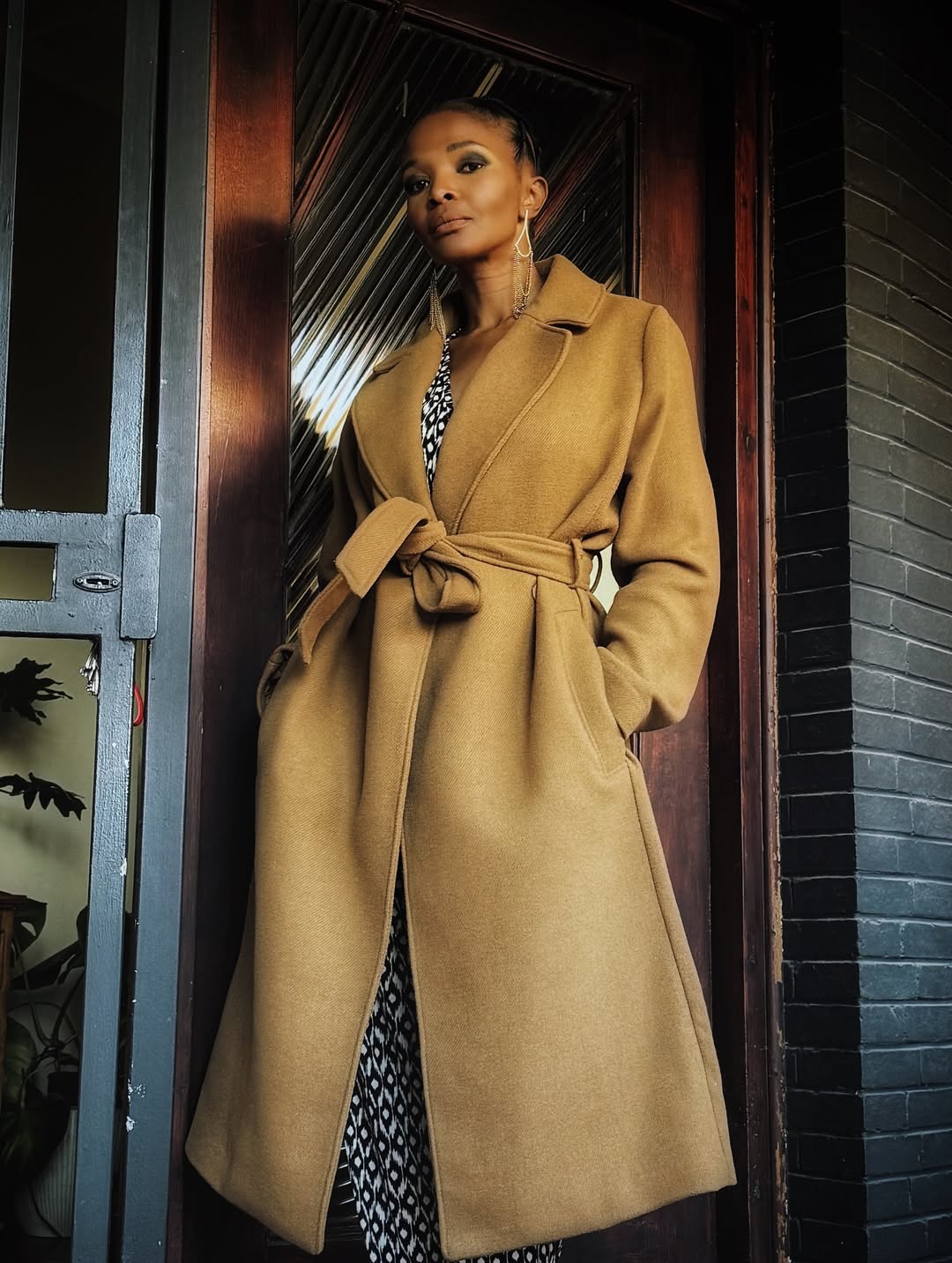
What would you say music means to you?
I found that music gave me a sense of calm as an overthinker. A sense of purpose. But it was how it made me feel connected to something bigger and beyond this lifetime. There was a time I felt born into the wrong family because I remembered a different childhood. In time, I got to understand that we have had many lifetimes. Some good, some bad. But all of them with a bigger purpose than just working to pay bills. My connection, via church, when I was young, intensified my connection with my divinity. As I grew older, I realised the synergies present in our different spiritual beliefs. How we are all connected. Then I could accept my spiritual calling. The divinity in my Africanness. Were I only using my own intellect to create music, my music would sound very different.
Your work often carries the soul of protest, touching on race, identity, and Pan-Africanism. Do you see yourself as an activist who sings, or a singer who uses her voice for activism?
I see myself as an artist. I’m fascinated by the human condition. I’m an observer and an empath. I believe all of humanity deserves respect and justice. I believe African unity can be fast-tracked through art.
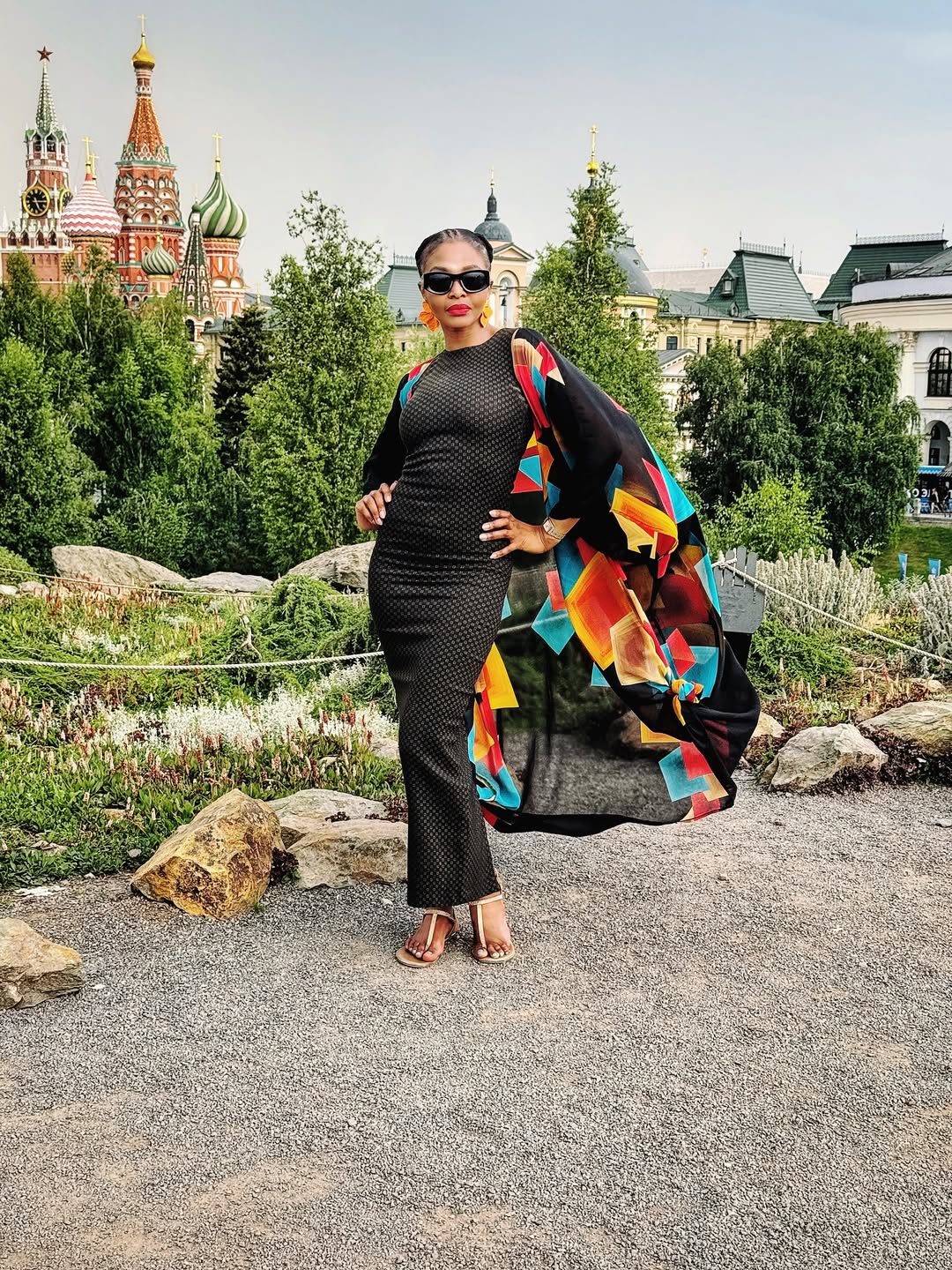
You often sing in isiXhosa, even when the global music market tends to reward English. How important is language in your work, and how do you think it connects with audiences beyond South Africa?
As an artist, I do what comes naturally to me. And English doesn’t come naturally, though I have written some English songs. Music is its language because it engages the feelings of the recipient. There’s no art more powerful than music. I have found that the language I sing in is a non-factor across all audiences I have performed for. Music connects us all spiritually.
What does a Simphiwe Dana song need to have before you know it’s ready for the world?
You literally have to pull me away from a song. I’m a perfectionist, and I’m never satisfied. Haha.
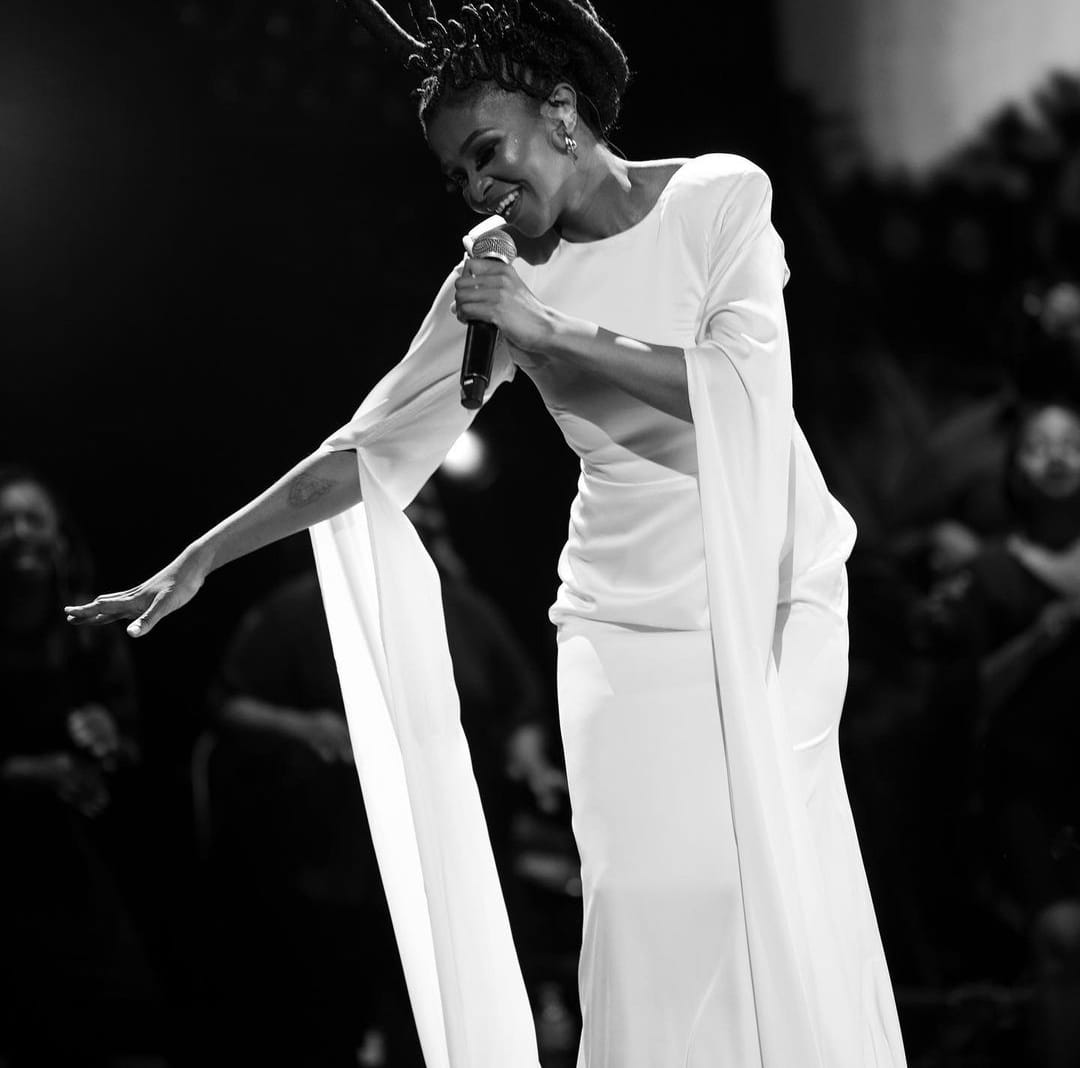
When you’re writing a song, what usually comes first: the words, the melody, or the feeling?
There really is no formula. Any of the above can come first. What is important is how I’m feeling at the time, and what thoughts are occupying my mind. And as an overthinker and empath, I feel a lot.
You recently marked 20 years in music. Looking back, what would you tell your younger self, and what still surprises you about being an artist today?
I would tell my younger self not to ignore my inner child. To face my childhood traumas, because that could make me a better and more intuitive creative. But then again, the pain I’ve experienced in my life has made me the artist I am. So I don’t know.
It surprises me that I still get severely anxious before a show, though I wouldn’t change it for anything, because it tells me that I still feel reverence for the work I do.
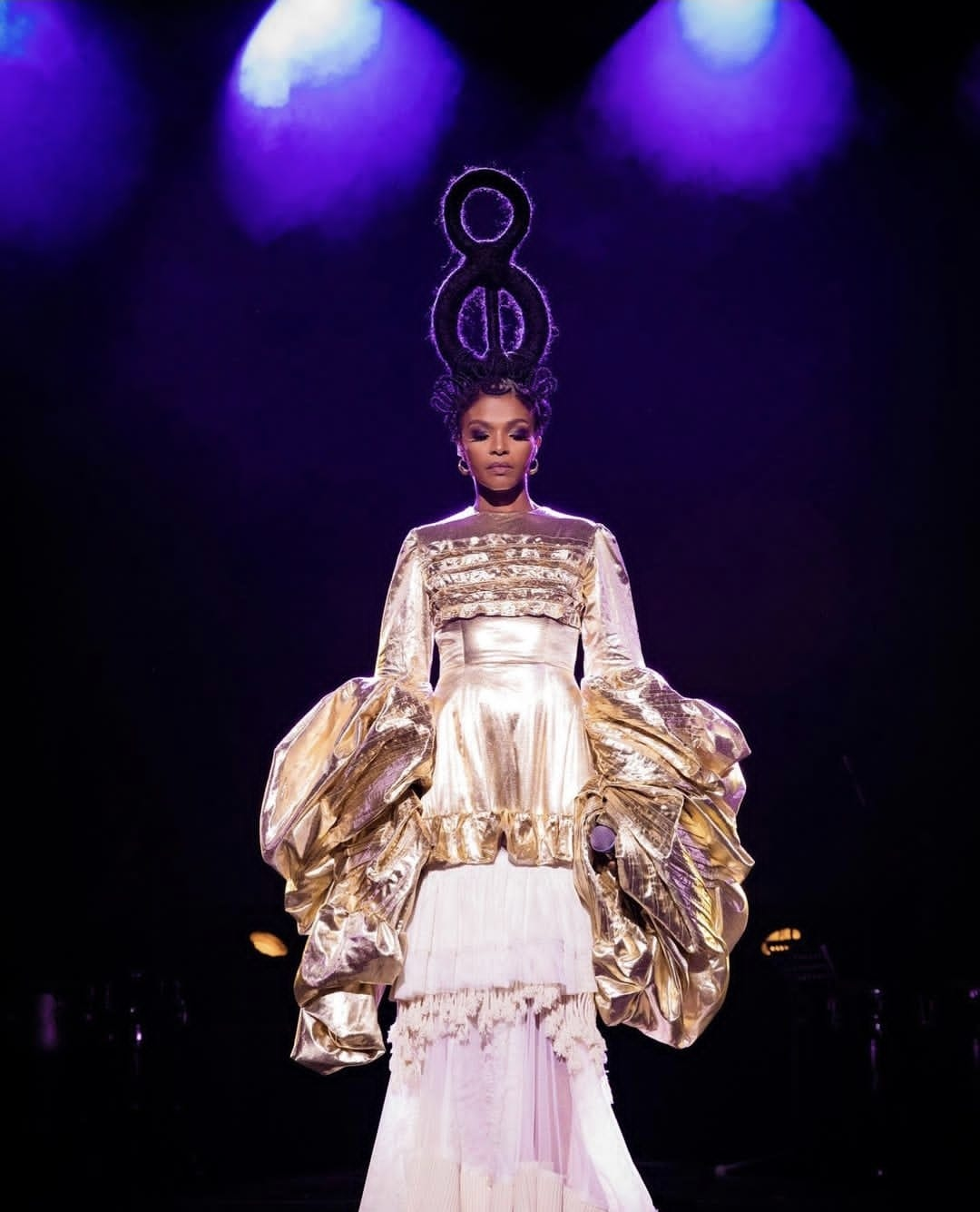
The album, Bamako, was a deeply cross-cultural project, working with artists from Mali and across Africa. What did you take away from that experience, and what does pan-African collaboration mean to you?
I was the convener of the African Union’s Arts and Culture chapter. I did this primarily because I believe the arts are the easiest way for people to connect. I’m fixated on the idea that real unity comes from people becoming more familiar with each other.
Working with Salif Keita, Djessou Mory Kante, and Mamadou Diabate was truly a transcendental experience for me.
With the state of the world, politically, culturally, and environmentally, what kind of stories do you feel compelled to tell next through your music?
The world is changing. Alliances are shifting. We may just experience true democracy in our lifetime. I’m excited about this. I’m excited that the wool has been pulled off many people’s faces, and we see the world for what it really is. This is giving us an opportunity to evolve psychologically. And this is good for humanity. With the advent of technology, people have cut out the middleman (mainstream media) and can finally see the world through their own eyes. This is good for advancement and, as Biko alluded to, infusing life back into the empty husks of humanity.
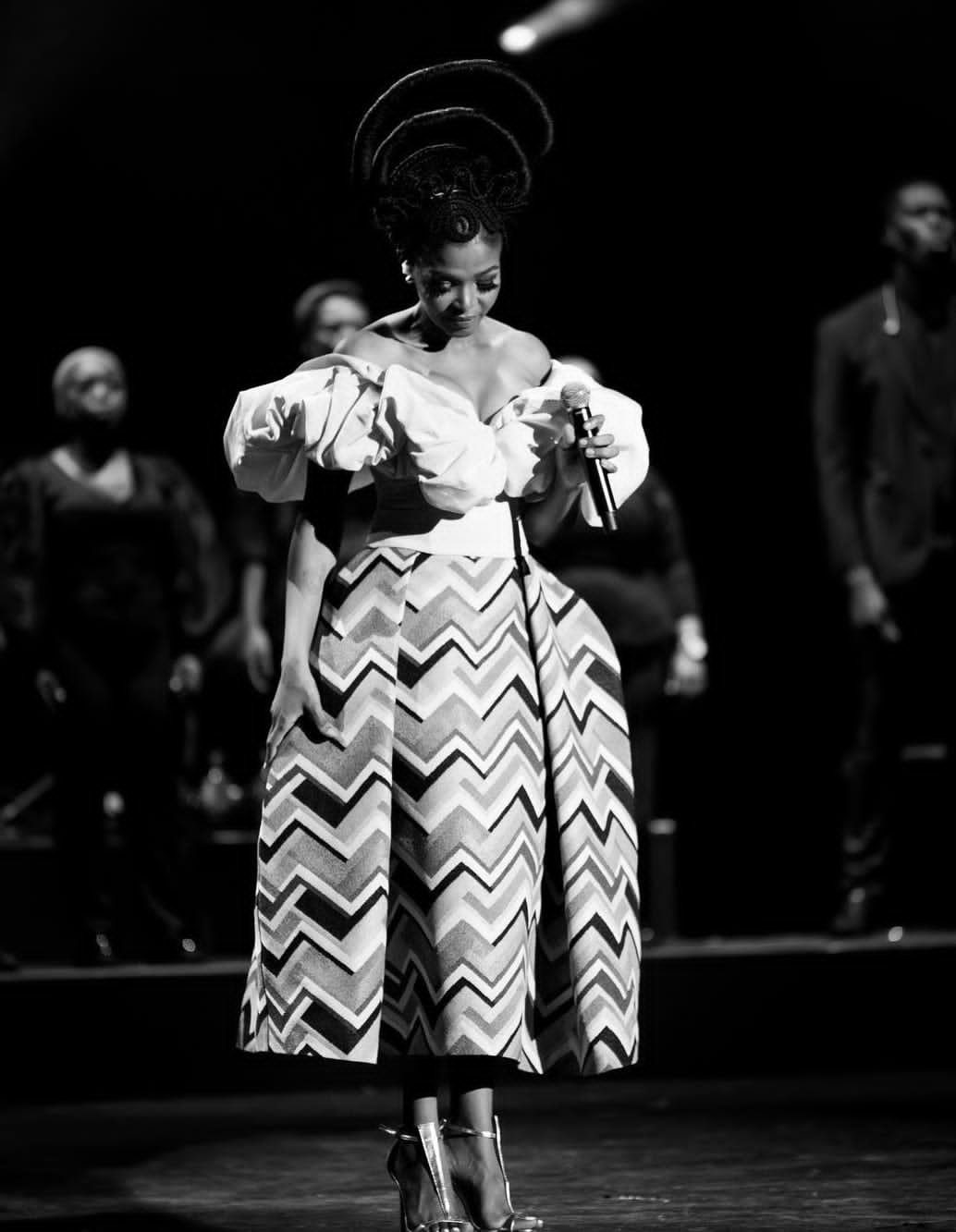
If you could select a favourite out of your albums, which would you pick and why?
Kulture Noir. I turned 30 the year it came out. It felt like I had come of age. Also, it was the first time I was comfortable instrumentally pre-producing many of the songs in it. Many of the songs, if not all, including Nkwenkwezi, Mayine, were pre-produced by me. That album has my complete signature more than any other.
Thank you for being on Doing Life With…
Thank you for having me.
__
Many thanks to Simphiwe Dana for having this conversation with us and answering all our questions – and swiftly, too, we must add.
Do you love this content, have any feedback for us or want to be a BellaNaija Features contributor? We’d love to read from you. Shoot us an email: [email protected]. Join us on Saturday for the next episode!


